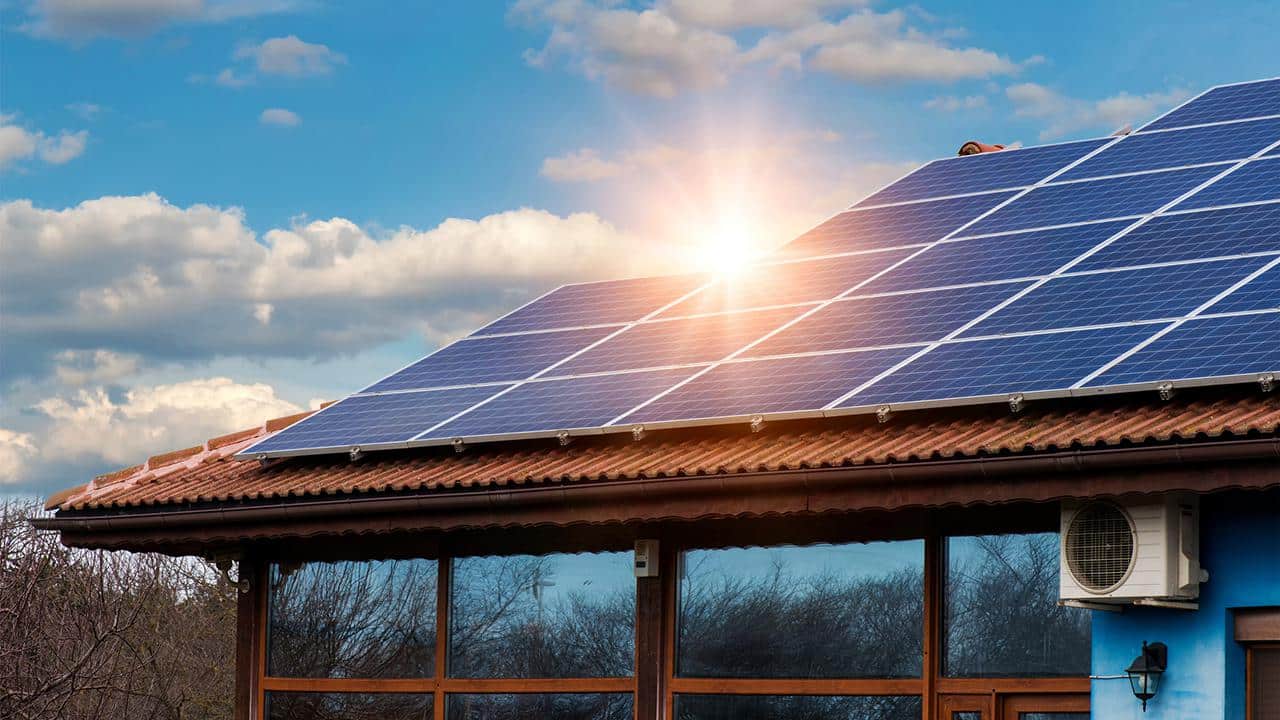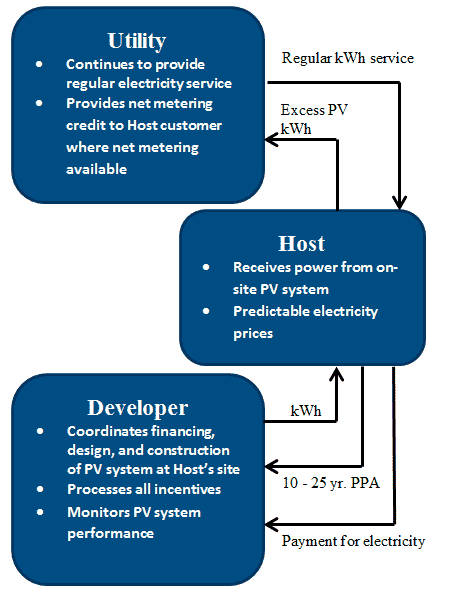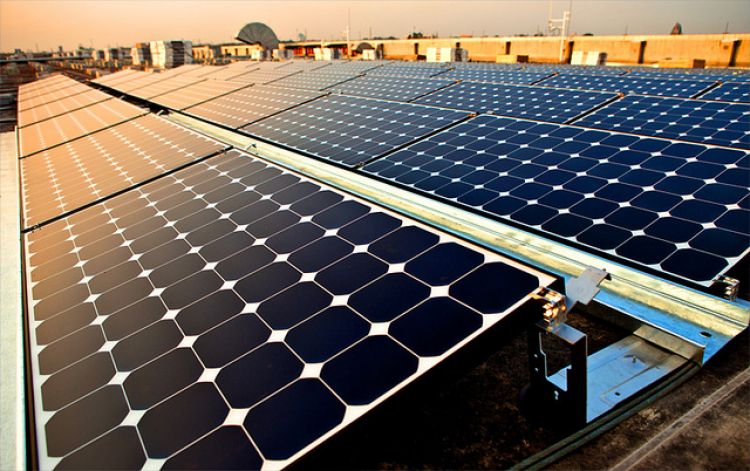What Happens If You Buy A House With Leased Solar Panels? | Here’s What You Need to Know
Leased solar panels are solar panels that are leased to homeowners or businesses by solar panel companies. These panels are owned and maintained by the solar company, and the homeowner or business pays a monthly fee to lease the panels.
You then pay the company for the electricity the panels produce. Leased solar panels can be a good option if you don’t have the money to buy a solar energy system outright or if you don’t want to deal with the hassle of maintaining one.
If you stop paying your lease, the company that installed your panels can take them back, which means you would lose all of the money you’ve invested in them. Additionally, leased solar panels may not be as efficient as bought ones, so you may end up paying more for electricity in the long run.
Leased solar panels are a type of solar panel where the homeowner does not own the system, but instead pays a monthly fee to a third party company. This company is responsible for the maintenance and upkeep of the solar panels, making it an easy and low-maintenance option for homeowners.
One advantage of leased solar panels is that there is no upfront cost. The monthly fee incurred is lower than if the homeowner were to purchase the solar panels outright. Additionally, there are no maintenance fees associated with this type of system.
The downside to leased solar panels is that they are owned by the third party company, which means that homeowners do not qualify for tax credits or cash rebates like they would with an owned solar panel system. In some cases, it can also be more difficult to resell a home with leased solar panels installed. The third party has the right to terminate the lease agreement if the homeowner’s credit score falls below a certain point.
What happens if you buy a house with leased solar panels?
If you buy a house with leased solar panels, you will be the owner of the solar panels, but the company who leased them to the previous owner will be the owner of the contract. You will be able to use the solar panels, but you will not be able to sell the solar panels or the contract to anyone else.
The leasing company is usually responsible for monthly fees and payments, but it’s important to know what the lease entails before assuming anything.
When you purchase a home with leased solar panels, you’ll need to pass a credit check in order to transfer the lease onto your name. The leasing company will most likely want you to agree to continue making monthly payments, so be sure you’re aware of all the details before signing any paperwork.
If you decide not to take on a lease, ask if the seller will pay off the remainder of the lease or help cover your monthly payments. Negotiating with the seller can be tricky, but it’s worth trying if taking over the lease isn’t something you’re interested in doing.

You become the owner of the solar panels and installation
If you buy a house with leased solar panels installed, you will become the owner of the solar panels and installation. Solar leases are typically for 15 to 20 years in length so if your home is sold, you will have to find out if the new owner of your house is willing to take over your lease.
You will continue to make monthly payments to the company that leased the system to you
The company that leased the system to you will continue to make monthly payments.
This is because when you buy a house with leased solar panels, you are not actually buying the solar panels; you are leasing them. Therefore, you will need to continue making monthly payments in order to keep the lease agreement in effect.
That company is responsible for maintaining and repairing the solar panels, and if something goes wrong with them, they will be the ones who have to fix it. You should also be aware that if you decide to sell your house while the lease is still in effect, the new owner will have to assume those monthly payments.
Solar panels can increase the value of your home
Adding solar panels to your home can increase its value. In fact, a recent study by the National Renewable Energy Laboratory found that solar panels can increase the value of a home by an average of $15,000.
Solar leases typically have a transfer clause that allows the new homeowner to take over the lease agreement. This means that when you sell your home, the new owner will become responsible for the monthly lease payments.
This is because it’s becoming increasingly popular for homeowners to install solar panels, and having a solar lease in place can give your home an edge over others on the market. If you’re thinking about selling your home in the near future, it may be worth considering leasing solar panels.
You may be able to save money on your energy bills
That’s because you’ll be using the solar panels to generate electricity, and you won’t have to pay for that electricity. You will, however, have to pay rent for the use of the solar panels. The amount of rent that you’ll have to pay will depend on how big your house is and how many solar panels are installed.
However, it’s important to remember that if you sell your home, the new owner will likely have to continue paying the lease on the solar panels. So, if you’re thinking about buying a home with leased solar panels, make sure you’re prepared to stick with the lease agreement for the long haul.
Buying A House With Solar Panels

There are a few things you should consider before buying a house with solar panels. First, ask the seller if the panels are owned or leased. If they are leased, you will be responsible for the monthly lease payments, even if you don’t use the panels. Second, find out how much the panels cost and what the monthly electricity savings are. Third, factor in the cost of installation and maintenance. Finally, consult with an experienced real estate agent who can help you navigate these issues.
Buying A House With Fully Owned Solar Panels
Buying a house with solar panels has many financial benefits. Fully-owned solar panels are the most ideal scenario, as the homeowner will own the panels once they’re installed.
If you’re looking for a home with solar panels, buying one that already has them installed is your best option. Not only will you save on the installation cost, but you’ll also be able to take advantage of government incentives and tax breaks.
Buying A House With Solar Panels In A Lease Or PPA
Leases usually last for 20 years, while PPAs usually last for 10 years. Leases also require a down payment, while PPAs do not. It’s also important to note that if you sell your home after signing a lease or PPA, you are obligated to transfer the contract to the new owner.
Buying A House With Solar Panels Financed Through A Solar Loan
A solar loan is a way for homeowners to purchase or finance their home with solar panels. It’s similar to a mortgage, but instead of paying the bank each month, you’ll be paying the solar company.
The main benefit of a solar loan is that it can allow you to install the panels for free, which saves on upfront costs. Depending on the terms, your payments may also be lower than a traditional mortgage.

Buying A House With PACE-Financed Solar Panels
PACE stands for Property Assessed Clean Energy, and it’s a way to finance energy-efficiency and renewable-energy projects through your property tax bill. And the interest rates are usually lower than what you’d find on a traditional loan.
There are a few things to keep in mind if you’re interested in PACE financing:
• It’s not available everywhere. Check with your state or local government to see if PACE financing is an option in your area. If you’re shopping for a mortgage, ask your lender about PACE financing.
• You don’t have to buy a new home to take advantage of PACE financing. If you’re considering buying an existing house, check with the local assessor’s office to see if the property has PACE financing available.
• You don’t have to use a contractor that your city or county recommends. The list of contractors is just a starting point for homeowners. If you want to use a contractor not on the list, your city or county can tell you how much PACE financing is available for that contractor.
• You don’t have to install new solar panels. If the house you want to buy has solar panels, your city or county may have PACE financing available for those systems. You might be able to get a loan to pay off the panels and keep them at the house.
• You can use PACE financing for energy-efficiency improvements, too. If you’re buying a home with existing solar panels or other energy-efficient features, you can still use PACE financing to pay off those improvements and keep them at the house.
• You don’t have to live in the house for a long time. If you’re buying a house with leased solar panels, you can still use PACE financing to pay off the panels and keep them at the house.
Factors to Consider When Looking to Buy a House Featuring Leased Solar Panels
When looking to buy a house with leased solar panels, you’ll want to consider the following factors:
-The length of the lease: You’ll want to make sure you’re comfortable with the length of the lease.
-The price of the lease: Make sure you’re comfortable with the monthly cost of the lease.
-The company that owns the solar panels: Make sure you’re comfortable with the company that owns the solar panels.
-The condition of the solar panels: Make sure you’re comfortable with the condition of the solar panels.
-The type of roofing material on your house: Make sure you’re comfortable with the roofing material on your house.
-The amount of energy the solar panels produce: Make sure you’re comfortable with how much energy the solar panels produce.
Review the Documents

The lease should include information about the terms of the agreement, how much you will be paying each month, and what happens if you decide to sell the home. It is also important to make sure that you are comfortable with the company that installed the panels. Ask for references from previous customers and check online reviews before signing any paperwork.
Reviewing all of the documentation and speaking with past customers of the installer can help ensure that you are making a wise decision for your home and your wallet.
When In Doubt, Ask!
Before purchasing a home with solar panels, be sure to ask the lessor about any questions you may have.
Understand the financial benefits of solar energy and take into account the value of your home when making your decision.
Don’t forget to consult with a lawyer before making any final decisions.
Check the Solar Panel Details
Some less scrupulous solar companies will sign homeowners up for 20-year leases without revealing that the panels are only guaranteed to last for 10 years. If the company goes out of business or the panels malfunction after 10 years, you could be left paying for expensive replacements or repairs on a system you don’t even own.
If everything looks good, go ahead and sign on the dotted line – just make sure you know what you’re getting into first!
Check Electricity Bills
This will give you an idea of how much money you could save by switching to solar power. You should also ask the current homeowner for their average monthly kWh usage and compare it to your own. If your usage is lower than the average, you may not save as much money as you’d hoped.
Determine Whether You Qualify For a Home With Solar Panel Lease
Not everyone does – usually, your credit score will need to be at least 650 in order to be approved. You’ll also need to have an acceptable debt-to-income ratio and make sure that you’re comfortable with the length of the lease agreement.
Lease agreements typically last around 20 years, so it’s important that you know how much money you’ll be paying each month during that time period. Additionally, make sure that you’re aware of any maintenance or repair costs that may come up – these typically fall on the homeowner’s shoulders, even if the solar panels were leased.”
What are the pros and cons of leasing solar panels?
The pros of leasing solar panels are that you don’t have to worry about the upfront cost, you may be able to get a lower monthly payment than you would if you bought the solar panels, and you don’t have to maintain the solar panels. The cons of leasing solar panels are that you don’t own the solar panels, you may have to pay a cancellation fee if you decide to end the lease, and you may not get the government tax credits if you lease the
Your leasing company will handle that for you. You also don’t have to maintain or repair the system. Leasing companies usually offer maintenance and repair services as part of your contract.
That’s because when you lease, the company owning the solar panels installs a meter that measures how much power your leased panels produce. You only get credit for the power they produce, not the full amount of energy your home consumes.
On the other hand, buying your own solar panels can be financially advantageous because of federal and local benefits. For example, in the United States, you can get a tax break for installing solar panels. This means that you can recoup some of the cost of buying them over time. You may also be able to sell excess energy back to your local utility company, which can save you money on your monthly energy bill.
Leasing solar panels can offer many benefits. You don’t have to worry about maintenance or repairs, and you can often lock in a low rate for the length of the lease. However, leasing solar panels is an expensive option in comparison to purchasing them outright. You never get to claim any of the benefits that make it worth buying a solar panel, such as tax breaks and reduced energy costs, if you lease them instead of owning them outright.
How to terminate a lease for solar panels
The leasing company has the right to terminate the lease if you sell your home or stop paying rent. You may also have the option to transfer the lease to a new homeowner.
There are typically two ways to terminate the lease, either by buying out the remaining value or paying a reasonable market price.
The longer you stay in your contract, the cheaper it gets, so buyers might be discouraged if they hear about this before closing on their purchase.
A leasing company may also allow you to leave early if you buy out the equipment at a reasonable market value and can transfer ownership of all equipment points giving them nothing more than what is listed in their contract as worth $0
5 Questions to Ask About Buying a Home With Solar Panels
Who Owns the Panels?
Leasing solar panels is a popular way for homeowners to save money on their electricity bill. However, with all of the various leasing options available, it can sometimes be confusing as to who owns the panels and who is responsible for paying to maintain them.
Who Made the Panels?
Not all solar panels are created equal, and some are better quality than others. You’ll also want to make sure that you’re buying panels from a reputable company who will be there to support you if anything goes wrong with them in the future.
Who Installed the Panels?
If they were installed by the previous owner, there’s a good chance that their warranty has since expired. In addition, if something goes wrong with the panels, you may have a hard time getting them repaired or replaced if they were not installed by a professional.
How Large is the System?
To find out how many kilowatt hours (kWh) your home uses in a day, look at your electric bill. The average U.S. household consumes about 900 kWh per month, or 10,800 kWh per year. You’ll want a solar panel system that can generate enough electricity to cover 100% of your annual energy consumption.
If you’re unsure about the size of system you need, consult with a local solar installer who can help you determine the right size for your home and budget
Is Net Metering a Possibility?
Net metering is a billing system that allows homeowners with solar panels to sell excess energy back to their utility company at a predetermined rate. It’s important to ask this question because, without net metering, selling your solar energy back to the grid may not be an option.
